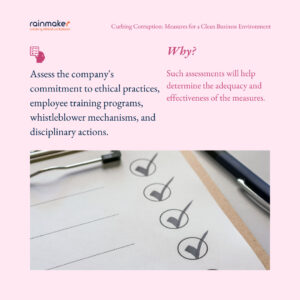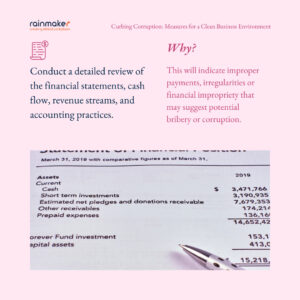Curbing Corruption: Measures for a Clean Business Environment


Due diligence is vital for businesses to combat corruption and bribery, ensuring legal compliance, mitigating risks, and safeguarding their reputation. This commitment to anti-corruption practices enhances trust among stakeholders, attracting ethical partners, customers, and investors.
Here are some best practices for conducting due diligence along with their importance.


Best practices for due diligence


Discuss bribery risks with management to gauge their commitment to anti-corruption practices.


Interview stakeholders like customers, suppliers and experts for valuable insights into reputation and risk exposure.


Perform corporate intelligence and background checks to spot red flags or past corrupt associations.


Walk-through tests confirm the effective implementation of policies and procedures.


Scrutinize financial records and transactional info for accuracy and consistency.


Disclaimer :
No information contained in this website may be reproduced, transmitted, or copied (other than for the purposes of fair dealing, as defined in the Copyright Act, 1957) without the express written permission of Rainmaker Online Training Solutions Pvt. Ltd.